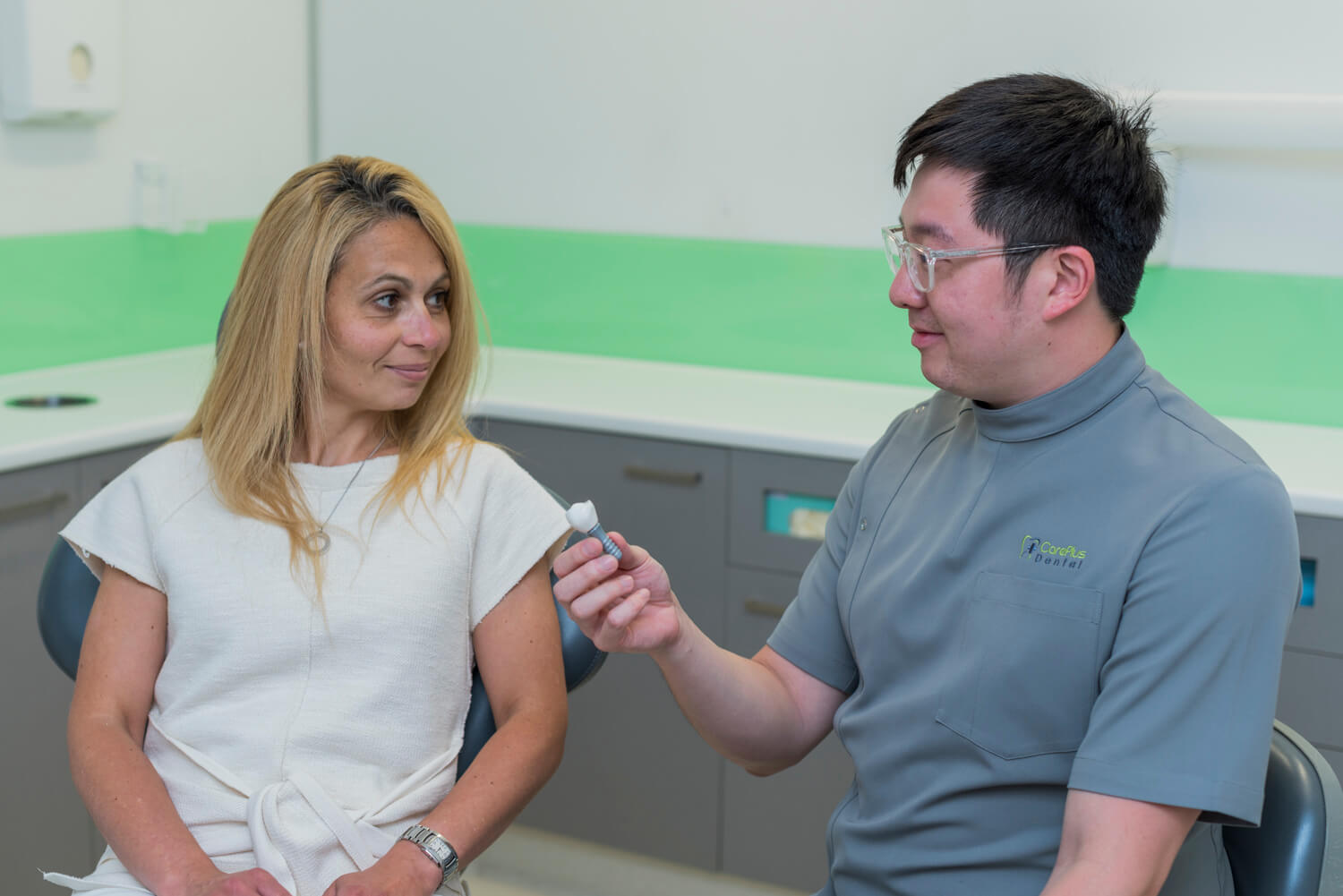
Composed of titanium, dentists use dental implants to restore missing teeth. They place these artificial teeth directly into your jawbone, making them permanent. As such, they’re a great option for you if you’ve lost a tooth.
What are the benefits of dental implants?
Here are some of the key benefits of dental implants. They:
- are a permanent solution, unlike dentures which can slip and cause discomfort and embarrassment whilst eating and talking
- are a stand alone solution which do not adversely affect neighbouring teeth – this differs from dentures and bridges which rely on your surrounding teeth to hold them in place
- are fused with the jaw bone making them as strong and reliable as your natural teeth
- restore your smile so that you can feel confident in social settings
- are convenient because they do not require a separate cleaning routine and can be cleaned in the same manner as your natural teeth
From an aesthetic standpoint, dental implants look natural. Unless you tell someone, they’ll never know you’re missing a tooth.
The procedure for implants
Most implants are safely inserted within your dentist’s office under local anaesthesia; however, some require hospitalisation and IV sedation. It’s important to understand that every procedure is different based on the patient’s preference, the dentist’s experience and the overall oral health of the patient.
This procedure typically involves three steps:
- titanium screws are surgically attached to the jawbone to serve as an anchor for a false tooth. The patient is then given a number of weeks or months for healing to occur and for the screw to fuse adequately
- your dentist will check the implant to make sure it has successfully integrated into your jawbone and then connect a post to the implant which will be visible above the gum line
- a false tooth is fabricated and fixed to the integrated dental implant
If you have a missing tooth and think that dental implants might be the solution to restore your smile, we invite you to make an appointment to discuss your specific circumstances.





